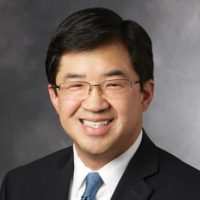A Randomized Controlled Trial of Bevacizumab for HHT-Related Epistaxis

Cure HHT is pleased to announce that Dr. Peter Hwang, Professor in the Department of Otolaryngology at Stanford University School of Medicine and Director of the Division of Rhinology and Endoscopic Skull Base Surgery, has been awarded a $10,000 grant for his research entitled “A Randomized Controlled Trial of Bevacizumab for HHT-Related Epistaxis”.
Dr. Hwang’s research is focused on determining (1) if intranasal bevacizumab injection decreases nosebleed frequency and severity compared to placebo when used in conjunction with electrocautery for patients with HHT, as measured by the ESS scoring system; (2) if intranasal bevacizumab injection results in a greater improvement in quality of life compared to placebo when used in conjunction with electrocautery for patients with HHT; and (3) the cost-effectiveness of intranasal bevacizumab injection compared to placebo when used in conjunction with electrocautery for patients with HHT.
Cure HHT, in partnership with the American Academy of Otolaryngology, is funding this important research as a follow-up to the Cure HHT North American Study of Epistaxis (NOSE Study) in which the efficacy of four agents (i.e., Bevacizumab, Estriol, Tranexamic Acid, and Saline) were tested in the first large-scale multi-center clinical trial.
The Stanford Sinus Center at the Stanford School of Medicine is conducting the first randomized, double-blind, placebo-controlled clinical trial of bevacizumab (Avastin) injection versus saline control for the management of HHT-related epistaxis. The results of this study could shift the current clinical practice paradigms in treating HHT-related nosebleeds.
Learn more about this clinical study eligibility and participation requirements.
Research Study Update
Dr. Hwang has recruited 32 study participants. Financial support is available to offset reasonable travel expenses to Palo Alto, CA for Bevacizumab (Avastin) clinical trial participants. Results of the study will be published once 40 participants have been enrolled. Learn more…
